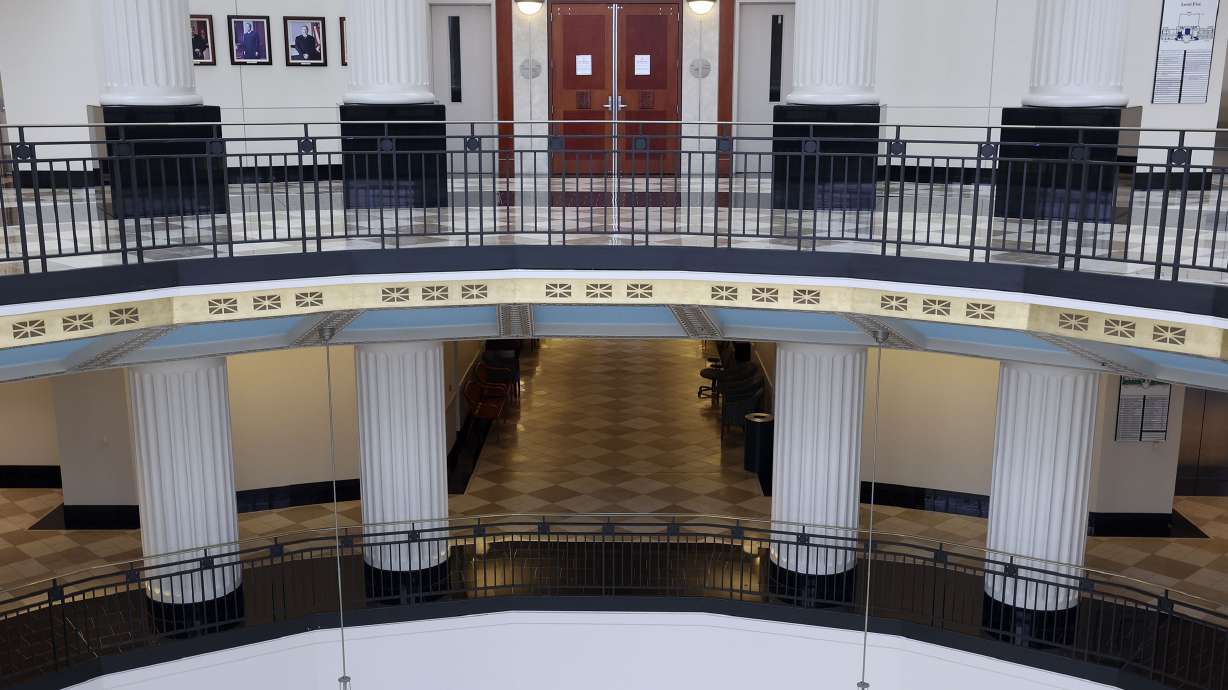Estimated read time: 5-6 minutes
This archived news story is available only for your personal, non-commercial use. Information in the story may be outdated or superseded by additional information. Reading or replaying the story in its archived form does not constitute a republication of the story.
SALT LAKE CITY — A case against a former pastor accused of repeatedly sexually abusing a minor in his congregation is set to move forward once again following a ruling from the Utah Supreme Court.
In an opinion filed on Thursday, the court ruled that the alleged victim in the case should not be required to testify at the preliminary hearing unless Isidor Pacomio Archibeque's attorneys present a sufficient argument on the issue in front of the state's attorneys, reversing a 3rd District Court ruling that said the arguments could be presented in private to the judge.
Archibeque, 46, is charged with two counts of rape, two counts of forcible sodomy and object rape, all first-degree felonies; and two counts of forcible sexual abuse, a second-degree felony. The crimes are alleged to have occurred between 2014 and 2017, while the girl was a minor and Archibeque was her pastor.
Charging documents say the abuse began when the girl was 14, and that Archibeque forced her to have sex with him multiple times a month. The documents claim that at one point Archibeque threatened to hurt her family if she said anything and he was also violent towards her on at least two occasions.
Archibeque denies the allegations, and his attorneys asked for a private hearing with the judge to show evidence why the victim should be compelled to testify in the preliminary hearing. They argued that privacy was necessary because they should not be required to expose their strategy to the prosectors. Prosecutors, on the other hand, claimed granting a private hearing would violate a judicial code's rule against the judge speaking with just one party.
In February 2021, the district court decided to strike a compromise and determined that Archibeque's attorneys could present the evidence privately to the judge, and if the court determined testimony from the victim could affect the outcome of the hearing, they would share the arguments with prosecutors.
Christopher Ballard, assistant solicitor general in the Utah Attorney General's Office, said they were "shocked" the court would allow this; his office appealed the district court's decision in early 2021.
The state's Supreme Court ruling reversed the order, determining that one-sided proceedings are not favored and that the defendant would have to include the prosecution if they want to argue to have the victim testify.
"Although we applaud the district court's efforts to craft a compromise that seeks to respect the constitutional rights of all interested parties, we are not convinced Mr. Archibeque's statutory or constitutional rights at this stage of the proceedings entitle him to an in camera proffer (private hearing)," the Utah Supreme Court opinion says.
The judges explained that they "would be inclined" to support the district court's decision if they thought it would protect Archibeque's constitutional rights, but that his argument did not merit the request for a one-sided proceeding.
"(Archibeque) is well within his rights to hold his cards until trial. What he cannot do is have his cake and eat it too. None of the rights Mr. Archibeque has identified protects him from the consequences of his litigation strategy," the opinion says.
Ballard said Thursday's Utah Supreme Court decision made it clear that this one-sided proceeding is not proper. "The judge shouldn't be making that decision based only on input from the defendant," he said.
Ballard explained that an amendment to the Utah Constitution and a related rule of evidence allow "reliable hearsay" to be admitted in a preliminary hearing, meaning a victim does not need to testify at that point if a statement from them is shared. He said now it is rare for a victim, specifically a child sexual assault victim, to testify at a preliminary hearing, something he said defendants have resisted.
Under State vs. Lopez, which the Utah Supreme Court ruled on while this case was ongoing, defendants have to meet a high burden for a judge to require a victim's testimony at a preliminary hearing. The Utah Supreme Court in that ruling decided the defendant's attorneys must show the testimony is needed to support evidence "that is reasonably likely" to lead to the charges not being supported to the probable cause standard.
Ballard said the ruling in Archibeque's case, which means that victims and prosecutors must be given the opportunity to respond to the defendant's argument before it is decided that victims should testify, is "a victory for victims."
Archibeque's team, however, said they are disappointed with Thursday's ruling.
"The Constitution, drafted as a bulwark against governmental power, is a charter of individual rights. But yesterday's decision elevates the rights of the state over the rights of the accused. By rejecting the sensible balance struck by the trial court, the Utah Supreme Court has given the government yet another way to tip the scales in its favor," defense attorneys Cara Tangaro, Jeremy Delicino and Ann Marie Taliaferro said in a statement.
Further, the attorneys said since the decision in State vs. Lopez, they believe the government often "presents minimal evidence" at preliminary hearings, which they said frustrates due process rights of the accused, promotes cases that are not fully vetted, and causes delays to trials and increased costs and burdens.
Archibeque is currently released on bail. He was ordered to not have contact with anyone under the age of 18 without their parents being present, not to perform ecclesiastical duties, and to wear an ankle monitor.
Once the case was placed on hold pending the outcome of the appeal, the court ordered the ankle monitor to be removed. Now, the case will be moving back to the district court and the hold will end.










